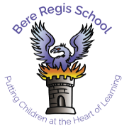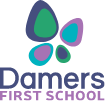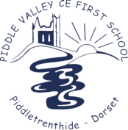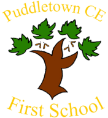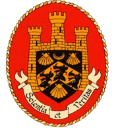
Maths
Maths at Puddletown First School.
The children at Puddletown First school love Maths, and developing their interest, exploration and understanding of mathematics is a passion of staff at Puddletown First school.
Intent:
Maths is essential for everyday life and at Puddletown First, we are privileged to be at the start of our children’s mathematical journey. Our curriculum provides an appreciation for mathematics and allows all children to see themselves as mathematicians. Our school has adopted the ‘Teaching for Mastery’ approach in maths, which we believe gives children the best possible opportunity to reach their full potential.
‘A range of elements of classroom practice and school organisation that combine to give pupils the best chances of mastering mathematics.
Mastering maths means acquiring a deep, long-term, secure and adaptable understanding of the subject. At any one point in a pupil’s journey through school, achieving mastery is taken to mean acquiring a solid enough understanding of the maths that’s been taught to enable him/her move on to more advanced material.’
NCETM (ncetm.org.uk)
Implement
At Puddletown we use the White Rose maths scheme to support our children’s learning. This scheme uses the mastery approach to maths teaching to meet the goals of the national curriculum. In practice this means:
-
Putting numbers first: The White Rose Scheme has number at its heart, because confidence with numbers is the first step to competency in the curriculum as a whole.
-
Putting depth before breadth: we reinforce knowledge again and again.
-
Encouraging collaboration: children can progress through the schemes as a group, supporting each other as they learn.
-
A focus on fluency, reasoning and problem solving: it gives children the skills they need to become competent mathematicians.
As part of our Maths provision we also follow the “Mastering Number” programme from the NCETM (National Centre for the Excellence in the Teaching of Mathematics) in KS1. This enables children to develop a good number sense throughout the school. The aim over time is that children will develop fluency in calculation and confidence and flexibility with number.
Impact
EYFS:
Pupils will build on previous experiences of number from their home and nursery environments, and further develop their subitising and counting skills. They will explore the composition of numbers within 5. They will begin to compare sets of objects and use the language of comparison. Pupils will then continue to develop their subitising and counting skills and explore the composition of numbers within and beyond 5. They will begin to identify when two sets are equal or unequal and connect two equal groups to doubles. They will begin to connect quantities to numerals. By the end of the year, pupils will consolidate their counting skills, counting to larger numbers and developing a wider range of counting strategies. They will secure knowledge of number facts through varied practice. They will also have time to talk about, explore and to describe shapes, spaces, and measure. Both Mastering Number and White Rose resources are used to support teaching and learning.
KS1:
The main focus of mathematics teaching in Key Stage 1 is to ensure that the children develop confidence and mental fluency with whole numbers, counting and place value using the White Rose Scheme of learning and the Mastering number course. With the use of small steps to succeed, children will be working with numerals, words and the 4 operations, including lots of practical resources and activities within the classroom and outside in the environment.
At this stage, the children will develop their ability to recognise, describe, draw, compare and sort shapes using the appropriate vocabulary. Also within this Key Stage children will be using a range of measures to describe and compare different quantities such as length, mass, capacity/volume, time and money.
Lower KS2:
The main focus of mathematics teaching in Lower Key Stage 2 is to ensure that pupils become increasingly fluent with whole numbers and the 4 operations, including fluency and automaticity in number facts and the concept of place value. Pupils should develop efficient written and mental methods and perform calculations accurately with increasingly large whole numbers.
At this stage, children develop their ability to solve a range of problems, including simple fractions and decimal place value. The children should draw with increasing accuracy and develop mathematical reasoning so they can analyse shapes and their properties, and confidently describe the relationships between them. They also develop their measuring skills and make connections between measure and number.
By the end of Year 4, pupils should have learnt their multiplication tables and show precision and fluency in their work.
Children’s progress is tracked within sessions and teachers are addressing misconceptions accordingly. Children’s progress will also be tracked termly and across years using the NTS assessments that will compare scores to a standardised score. Children at Puddletown are able to independently apply their knowledge to a range of increasingly complex problems and are reasoning with increased confidence and accuracy.


